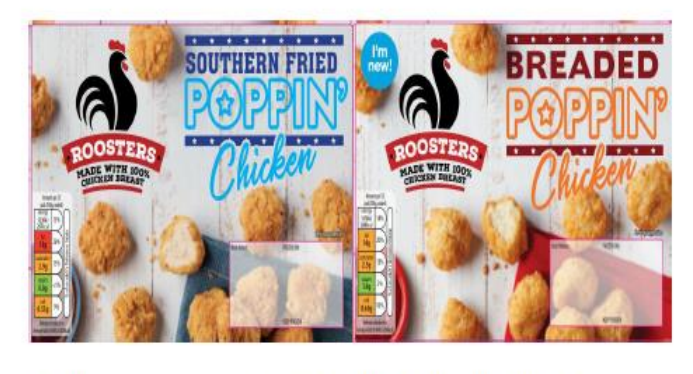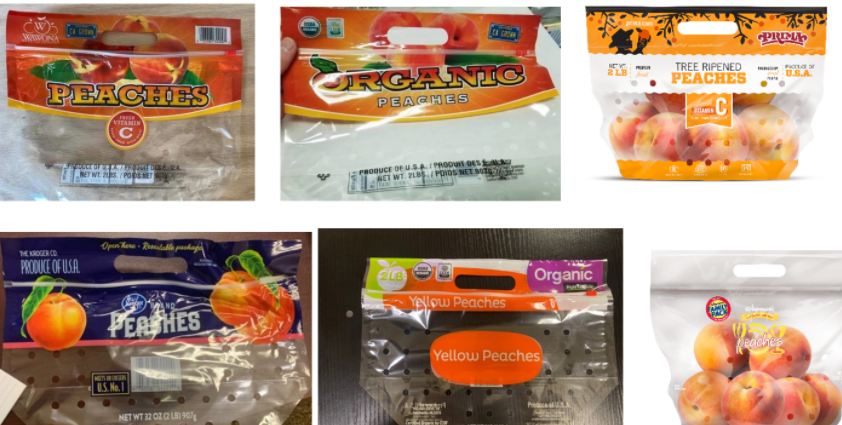Food Safety News reports that almost 400 people became ill due to Salmonella Enteritidis since the start of the year in the United Kingdom after eating frozen chicken products. There have been 327 people sick in England, 32 in Scotland, 26 in Wales, and five in Northern Ireland linked to raw breaded chicken products. For cases where information is available, 36% needed hospitalization, and four people have died (it is not clear that Salmonella caused the death and not COVID-19). There is a high proportion of children sick, as 43% of cases are aged 16 years or younger. @ https://www.foodsafetynews.com/2020/10/nearly-400-people-sick-from-salmonella-in-uk-nearly-half-are-children/
ruth
Almost 400 people have fallen ill with Salmonella since the start of the year in the United Kingdom after eating frozen chicken products. The Food
ruth
The multistate outbreak of Salmonella Enteritidis infections linked to peaches from Prima Wawona that was sold in several regions of the United States and Canada, and internationally, is over. As of October 15, 2020, CDC reported a total of 101 cases across 17 states. Internationally the products were sold in Australia, Canada, Costa Rica, Ecuador, El Salvador, Guatemala, Honduras, Mexico, United Arab Emirate, Panama, Philippines, Singapore and Taiwan. The cause and source of the outbreak have not yet been determined. The peaches were recalled on August 22, 2020 and are now beyond their expiration date. Recalls have also been initiated by companies that sold peaches or products containing recalled peaches. @ https://www.fda.gov/food/outbreaks-foodborne-illness/outbreak-investigation-salmonella-enteritidis-peaches-august-2020?utm_medium=email&utm_source=govdelivery
CDC declares outbreak over, FDA continues its investigation.
ruth
Listeria monocytogenes (LM) contamination of produce can often be traced back to the environment of packinghouses and fresh-cut facilities. Environmental “routine sampling” plans for LM and other Listeria spp. were developed and implemented in three packinghouses and five fresh-cut facilities in the United States. A total of 2,014 sponge samples were collected over six to eight separate samplings per operation. They were performed over 1 year; vector and preproduction samples (n= 156) were also collected as needed to follow up on positive findings. LM prevalence varied from 0.8 to 5.8% for packinghouses and <0.4 to 1.6% for fresh-cut facilities. Validation sampling found a statistically significant higher LM prevalence compared with routine sampling for three of eight operations. 17 of 77 sponges that were positive for LM were positive at only one enrichment time (i.e., 24 or 48 h), indicating that LM testing after two different enrichment times provides enhanced sensitivity. The study supports the importance of either (i) a molecular screen of the enrichment media or (ii) chromogenic differential media when testing environmental samples specifically for LM. @ https://meridian.allenpress.com/jfp/article/83/10/1656/435359/Detection-and-Prevalence-of-Listeria-in-U-S
ruth
Health Canada announced on its website that National Herring Co. is recalling Adar brand Schmaltz Herring in Oil from the marketplace due to possible Listeria monocytogenes contamination. This recall was triggered by the Canadian Food Inspection Agency (CFIA) test results. There have been no reported illnesses associated with the consumption of this product. @ https://healthycanadians.gc.ca/recall-alert-rappel-avis/inspection/2020/74127r-eng.php
National Herring Co. is recalling Adar brand Schmaltz Herring in Oil from the marketplace due to possible Listeria monocytogenes contamination. Consumers should not consume the recalled product described below.




